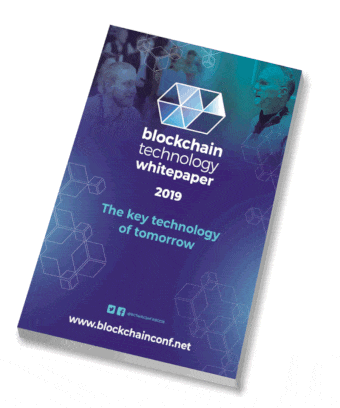When Bitcoin burst onto the scene and made blockchain one of the hottest technologies to come along in years, nobody quite knew how to prepare for a career that focused on it. The earliest developers came straight from the teams that built the major blockchain implementations or from a small core of true believers in the technology. Then, major corporations started to take notice and the talent pool was soon stretched to its breaking point.
Since then, programmers and developers from a wide variety of related tech disciplines have flocked to blockchain work. They’ve done so as big enterprises have started to invest heavily in the technology, making blockchain second only to AI in next-generation technology spending. That has made the role of blockchain engineer a lucrative one, as well as one that’s evolving on a near-constant basis.
The evolution has been so dramatic that it’s becoming clear that the next generation of blockchain professionals are going to need skills that their predecessors never had. Learning institutions have started to recognize this and are beginning to make blockchain a core component of interdisciplinary studies. Here’s a profile of what the blockchain developer of tomorrow might look like – and which crossover skills might be the most in-demand.
A strong security background
One of the key benefits of blockchain systems is that they’re extremely secure when implemented correctly. Unfortunately, the rapid adoption and development of recent blockchain systems haven’t gone so smoothly. There have been repeated instances of blockchains falling victim to hacks. Some have come from malicious actors taking control of over half of the participating nodes, while others have resulted from poor smart contract coding. Either way, they represent the kinds of risks that businesses can’t allow.
That’s a big reason that companies investing in blockchain expect developers to be well-versed in data security, including understanding security concepts outside the blockchain itself. Security researchers are already making a mark on the blockchain industry, such as in discovering system weaknesses that enable mass-theft of data and cryptocurrency. In the near future, that should fuel a sharp increase in developer enrollment in things like CompTIA courses centered on penetration testing and security.
Sign up now!
An understanding of global finance
Of all of the industries that have started to adopt blockchain into their future plans, none has gone further than the global financial industry. For that reason, the blockchain developers of tomorrow will need to have roots in finance, so they can comprehend the real-world economics associated with the systems they’re working on. It’s an area that will see the lion’s share of demand in the coming years, with some analysts indicating that as many as one in three fintech businesses will be making use of blockchain by 2020.
At the same time, there will also be an increase in demand for developers that have an understanding of the legal and regulatory frameworks associated with the industry. Prestigious law schools like Stanford have already started rolling out courses that cover the intersection of blockchain and the law within the fintech space, and many more are already following their lead. Future developers with such skills will form the core of fintech development for many years to come – and make a great living doing it.
Data analysis fundamentals
Although much of the hype surrounding blockchain has been in the world of finance, many of the early real-world applications of the technology have revolved around one thing: data storage and sharing. As blockchain is becoming the next-generation core technology in the world of big data, it’s requiring developers to have a grasp on how modern data analysis and business intelligence systems work. To that end, tomorrow’s blockchain developers will need to have a background in data analysis so they can understand the use cases the platforms they build are designed to serve.
The crossover in this area is enormous. Blockchain systems are already seeing use as massive, distributed data storage systems for today’s big data applications. They’re also seeing development that aims to create global information marketplaces that might fuel the data-driven businesses of the future. No matter how you look at it, it’s plain to see that there will be no shortage of future blockchain projects that intersect with big data initiatives, so it’s going to be essential for future blockchain developers to have a firm grasp on the applied analytics their projects will support.
The future blockchain developer
It should be obvious by now that the blockchain developer of the future will have to be so much more than a technical expert. They’re going to need skills that reach across industries and encompass a wide variety of disciplines. The shift in this direction is a sign that blockchain, as a technology, is moving beyond its early speculative beginnings and toward more specific and purpose-driven development.
While that means it’s going to get harder for people with nothing but a programming background to break into the world of blockchain development going forward, it’s a healthy development for the future of the technology itself. It also means that future blockchain developers will have to choose an industry to focus on in advance so they can acquire the specific skills needed in their field. We’re about to see a whole new generation of blockchain developers that are specialists, rather than generalists. It represents the completion of the evolution of blockchain from a hot new technology to a global standard that underpins industries of all kinds – and now you know what the developers that will power it will look like.












